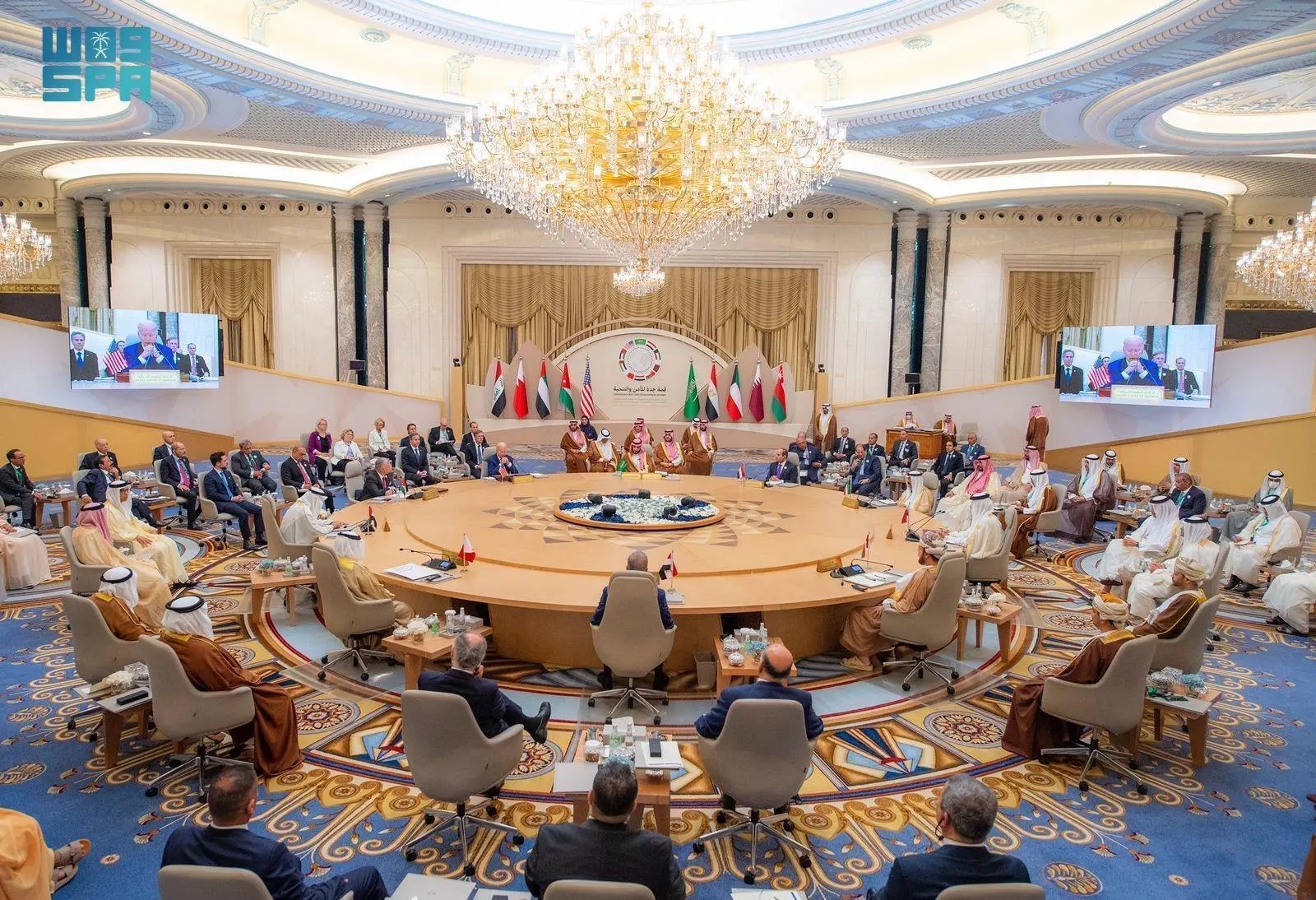
GCC-USA Summits: Shared Interests, United Visions
The strategic partnership between the Gulf Cooperation Council (GCC) states and the United States rests on robust relations and mutual interests. This partnership has fostered enhanced cooperation across diverse political, economic, trade, and investment sectors. It has also established a structured framework of joint working groups that oversee implementation within their respective domains, encompassing political, military, economic, cultural, educational, and other areas.
This relationship has progressed significantly through joint summits, marking key milestones in their collaborative journey. The first summit between the GCC and the US convened with a meeting at the White House in Washington on May 13, 2015.
The meeting addressed Gulf-US relations and explored avenues for further strengthening across various sectors. Discussions also covered political and security developments in the region, the Iranian nuclear issue, and the collaborative efforts undertaken by the GCC and the US to uphold regional security and stability.
On May 14, 2015, the leaders and heads of delegations of the GCC member states convened with President Barack Obama at Camp David, where they reaffirmed mutual commitment to a GCC-US strategic partnership, aimed at fostering closer ties in all areas, notably defense and security cooperation, and at developing joint solutions to regional challenges, thereby strengthening their shared interest in stability and prosperity.
At the invitation of Custodian of the Two Holy Mosques King Salman bin Abdulaziz Al Saud, GCC leaders and the US president held a Gulf-US summit in Riyadh on April 21, 2016, to reaffirm their strategic partnership for regional stability, security, and prosperity.
The leaders reviewed the significant progress achieved since the first summit, including implemented measures to strengthen GCC-US cooperation.
The GCC and the US reiterated the imperative of resolving the Israeli-Palestinian conflict through a just, lasting, and comprehensive peace agreement. To this end, the leaders reaffirmed the significance of the 2002 Arab Peace Initiative and resolved to continue close coordination in urging both parties to demonstrate their commitment to a two-state solution through tangible policies and actions.
The leaders further affirmed their commitment to ongoing close coordination between the GCC and the US on shared priorities through regular meetings of foreign and defense ministers, and to endeavor to hold an annual leaders' summit. They directed joint working groups to convene at least twice annually to expedite partnership in counterterrorism, facilitating critical defense capabilities transfer, ballistic missile defense, military readiness, and cybersecurity.
To ensure the continuity of these activities and the swift implementation of decisions, the leaders directed relevant agencies to strengthen partnership frameworks, including the GCC-US Strategic Cooperation Forum.
On May 21, 2017, in Riyadh, the Custodian of the Two Holy Mosques, GCC leaders, and President Donald J. Trump convened a Gulf-US summit to reaffirm their strategic partnership.
Recognizing the Kingdom's leading role and influence regionally and globally, and on behalf of the Custodian of the Two Holy Mosques, His Royal Highness Prince Mohammed bin Salman bin Abdulaziz Al Saud, Crown Prince and Prime Minister, chaired the Jeddah Security and Development Summit in July 2022. The summit was attended by leaders and heads of delegations from GCC nations, the United States, Jordan, Egypt, and Iraq
In an implementation of the decisions of the GCC-US summits, several ministerial-level meetings were held to govern efforts to develop the strategic partnership with the United States. This was achieved through the formation of 10 working groups and joint teams dedicated to enhancing cooperation in several key areas of mutual interest.
The most recent of these engagements was the joint ministerial meeting between the GCC and the US in New York in September 2024, attended by the GCC foreign ministers and the US secretary of state. The ministers reaffirmed their mutual commitment to the strategic partnership, building upon prior achievements and enhancing consultation, coordination, and cooperation across all sectors.
On the Palestinian issue, the ministers expressed their support for the establishment of an independent and viable Palestinian state coexisting peacefully and securely alongside Israel based on the 1967 borders, with mutually agreed land swaps, and in accordance with internationally recognized parameters and the 2002 Arab Peace Initiative.
Concerning Gaza, the ministers pledged to pursue an immediate and sustainable ceasefire and the release of hostages and detainees, aligning with President Biden's parameters and UN Security Council Resolution 2735. They lauded the mediation efforts of Qatar, Egypt, and the United States, stressed the significance of unimpeded humanitarian access and the restoration of essential services, underscored the need for protection of humanitarian personnel, and affirmed the urgency of support to alleviate the suffering of Palestinians, commending UNRWA's role in aid distribution.
Concluding the meeting, the ministers affirmed their mutual resolve to contribute to regional security, stability, and prosperity, to foster closer relations across all sectors, particularly in defense and security cooperation, and to continue holding future working group meetings.
Commercially, the GCC countries maintain strong trade and investment ties with the US, with a trade volume exceeding $180 billion in 2024.
Defense cooperation stands as a key area of collaboration between the Gulf and the US, exemplified by the Working Groups on Integrated Air and Missile Defense and Maritime Security’s efforts in strengthening strategic cooperation.
Continuing these strong relations and building on a solid legacy of partnership and understanding, the GCC-USA Summit will be held tomorrow in Riyadh, marking a new chapter of constructive cooperation and affirming progress toward a more secure, stable, and prosperous future for the region and the world.
This summit, driven by a shared desire to strengthen the strategic partnership between the GCC and the United States in line with the Custodian of the Two Holy Mosques' vision for enhanced joint Gulf action and activated strategic partnerships, provides an opportunity to discuss pressing political and security challenges and coordinate efforts to bolster regional security and stability.
Amid increasing regional and global complexities, these Gulf-US summits remain an effective model for political and security coordination, reflecting the alignment of interests and convergence of visions between partners with shared objectives and significant responsibilities for regional and global stability.








